Babe Ruth: "The way a team plays as a whole determines its success. You may have the greatest bunch of individual stars in the world, but if they don't play together, the club won't be worth a dime."When a group of people organize, with time and energy towards a goal, a team emerges, and there are three calculations that can result:
1. (1 + 1 = 1) They can mesh and fuse their potential together so well that when they move they cannot be distinguished from one another. They become one. 2. (1 + 1 = 2) They can play as individuals who bring a unique and valued perspective to each play. 3. (1 + 1 = 3) They can elevate beyond the capabilities of the individuals and reach a sum that is greater than its parts. Although, for one to become a valued member of the team they must expend time and energy towards personal goals in solitude, it cannot be denied, when one of those components is missing, you don't have a team anymore. If you enjoyed this new meditation on the deeper meaning of the game, you’ll love THE ART OF WAR AND BASEBALL!! Check it out here: www.theartofwarandbaseball.com
0 Comments
LAO TZU: "The master is content to serve as an example...he illuminates, but does not dazzle."What advantage does light have shining on itself? In this way a star is effective only when its shining brings out the brilliance of others. There is no need to shine light towards a light. Therefore, one who shines in a way that intentionally draws attention toward themselves does not have the qualities of a star. A star serves light with no expectation of reward, and illuminates the world as a result.
If you enjoyed this new meditation on the deeper meaning of the game, you’ll love THE ART OF WAR AND BASEBALL!! Check it out here: www.theartofwarandbaseball.com JOE DIMAGGIO: "Baseball didn't really get into my blood until I knocked off that hitting streak. Getting a daily hit became more important to me than eating, dringking or sleeping."Records are a way we keep track of the extraordinary events in history. We use them to measure our greatness. And many records are on the basis of streaks: Ruth's consecutive over forty home run seasons, Cobb's twenty three straight seasons with over .300 batting average, Ted Williams reaching base in eighty four games in a row, Cal Ripken Jr.'s 2,632 consecutive game streak, and the 1916 New York Giants twenty six game win streak are but only a few examples. But it turns out, when time is taken into account, most records, even beyond baseball, fall into the statistically reasonable category. That is to say, when the relative skill of athletes and the relative time of play is taken into account these records are within the bounds of the mathematical probability distribution (i.e. a team who wins 70% of their games will statistically win twenty six games in a row once in every eleven thousand games. And given a team like the Cubs has played over twenty thousand games we are within the reasonable amount of time-played for an event like that to occur without it being considered exceptional). It's not to say that these achievements aren't great, but it is saying that at the current level and time of play these achievements were bound to happen. In this sense, statistics can help to curb our sense of specialness. Our evolutionary superiority creates a tendency to look at the trends of our achievements myopically, within the bubble of but a few hundred or thousand years. But this excludes the fact that we humans have existed for but a blip in the billions of years of our world. True greatness includes the feats of certain strains of bacteria which have persisted for over three billion years on this planet or, at a larger scale, animals like jellyfish, who have been in our seas for over 500 million years. So are there really any sports achievements that are statistically improbable and therefore truly exceeds what seems humanly possible when the mathematics are taken into account? Turns out, yes, Joe DiMaggio's fifty six game hit streak.
If you enjoyed this new meditation on the deeper meaning of the game, you’ll love THE ART OF WAR AND BASEBALL!! Check it out here: www.theartofwarandbaseball.com Don Shula: "My coaching philosophy? Determine your players talents and give them every weapon to get the most from those talents."Oddly enough, my first entry specifically on philosophy will likely be my most pragmatic. As I prepared for coaching this year, I spent some time meditating on my tactical coaching philosophy for my youth team. This information includes what I'm expecting of myself and the players (and parents). It is important to communicate expectations. This not only helps to set a strong foundation for the team, it minimizes false preconceived notions. I hope this helps other coaches as they prepare for whatever game they intend to lead.
Goals:
My Intentions:
My Expectations: Sportsmanship: is paramount and includes respect for coaches, officials and each other
Enthusiasm: always express interest in reaching your full potential
Safety: players are expected to be aware of their surroundings and thinking through the consequences of their actions before acting. Accountability: There will be consequences for breaking our team values, whether that be reduced playing time or sprints. We all can’t reach our full potential without playing together. Parent/Player Concerns:
If you enjoyed this new meditation on the deeper meaning of the game, you’ll love THE ART OF WAR AND BASEBALL!! Check it out here: www.theartofwarandbaseball.com Sun Tzu: "Know thyself and you will win all battles."For any great coach there are three critical skills one looks to grow in understanding:
1. Increased understanding of methods to relay player skills to players - How to coach better 2. Increased understanding of player skills - How to play better 3. Increased understanding of the self - How to live better Although many coaches can start at the first and work towards the last, the best start from the last and work towards the first. If you enjoyed this new meditation on the deeper meaning of the game, you’ll love THE ART OF WAR AND BASEBALL!! Check it out here: www.theartofwarandbaseball.com ANNE Frank: "Parents can only give good advice, but the final forming of a person's character lies in their own hands."Coordinators exist to give advice, but advice is a two way street. Its usefulness is just as dependent on the receiver as the giver. Many times, if we're being honest with ourselves, we tend to ask for advice only from those who we sense will tell us what we want to hear. And many times the power of advice really comes down to respect. Those who we don't respect that give advice will always give bad advice, no matter how good it is. And those who we respect that give bad advice will always give good advice, no matter how bad it is. Asking for advice we must first ask ourselves why we are asking for it. To reaffirm a bias or to seek the truth? Overall, we tend to be weary of advice. If we think of it mathematically, it's because there is an infinite amount of bad advice that can be given and very little good advice. So, what is most important for the giver of advice is to remember that they are always providing it within the context of their current state. If they happen to be unhappy with their job, they may support you more easily in your desire to move on. Or if they're scared of losing their job, they may discourage your quest to follow your dreams at all costs. Neither bit of advice is bad, just limited to the advisor's experience.
If you enjoyed this new meditation on the deeper meaning of the game, you’ll love THE ART OF WAR AND BASEBALL!! Check it out here: www.theartofwarandbaseball.com Albert Camus: "Real generosity towards the future lies in giving all to the present."The past 'me' is a ghost. The large catalog of memory I have of myself can make me feel like the past me is who I am. But it is no more real than the future me, a fantasy. So why do I define myself by my past and future when the only real me is now! This me cannot be beaten. This me cannot be broken. This me makes the right decisions. This me is ready for whatever pitch comes my way. Businessmen that do not honor this reality can be tricked by topics such as sunk costs. In this case an investment in our past can overwhelm our current decision making ability, working against our best interest in the present. Therefore, experience each moment fully, as though it is all that there is, taking all things into consideration without being swayed by past ghosts or future fantasies, and your best self will emerge.
If you enjoyed this new meditation on the deeper meaning of the game, you’ll love THE ART OF WAR AND BASEBALL!! Check it out here: www.theartofwarandbaseball.com Ernie Harwell (Hall of Fame Broadcaster): "Baseball is just a game, as simple as a ball and bat, yet as complex as the American spirit it symbolizes. A sport, a business and sometimes even a religion. This is a game for America. Still a game for America, this baseball!"We all love our country. But what is a country? We could define it simply as the land within defined borders. To this end our love is minimized to rocks and dirt. Ok then, it is where our family resides. But what if our family is on holiday in another country? Does our allegiance shift during those weeks or months? Ok then, so it is an ideal. Yes, it is an ideal. It is what the people have uniformly agreed as a collective character. Well then, when standing for one's country, the opposition includes anyone who endangers the character we are trying to uphold together. Who are we? What qualities are we trying to uphold? Remember that when you say you love your country.
If you enjoyed this new meditation on the deeper meaning of the game, you’ll love THE ART OF WAR AND BASEBALL!! Check it out here: www.theartofwarandbaseball.com Jack Buck after Gibson's home run in the 1988 World Series Game 1: "I don't believe that I just saw! I don't believe what I just saw!"Insanity, in the sense of mental instability, is something we tend to steer clear of at all costs. We do this because we are uneased by the unpredictable, especially when we feel it may cause us harm. Yet, insanity as an outrageous or amazingly unpredictable event is something we all gravitate towards. Because the mundane is not social media worthy. We want the shocking. That's what entertains us. The routine plays bore us, yet comfort tricks us into thinking it's all we want for our own lives. If greatness is your goal, be willing for people to think your dedication is insane. Most people are too scared to be obsessed. But in order to be extraordinary, you can't be ordinary.
If you enjoyed this new meditation on the deeper meaning of the game, you’ll love THE ART OF WAR AND BASEBALL!! Check it out here: www.theartofwarandbaseball.com YODA: "For my ally is the Force, and a powerful ally it is. Life creates it, makes it grow. Its energy surrounds us and binds us. Luminous beings are we, not this crude matter."I wrote The Art of War and Baseball because we are spiritual beings yet it takes common ground to soften the heart to the spirit's whisper. For what else is a baseball field but the connection point of all players? You can’t have a game without it. It is the same in life. We have a tendency to want to rely on science for the answers - I should know it's my profession. But when we trace science to its most fundamental structure what do we find? Oddly enough we find the field. The field emits from all things. It is the energy that radiates at the foundation of the physical. It is not understood, even by the greatest minds. It consists of invisible forces that influence what we perceive as real. And how different is it to spirit? One could make the case that they are one in the same.
If you enjoyed this new meditation on the deeper meaning of the game, you’ll love THE ART OF WAR AND BASEBALL!! Check it out here: www.theartofwarandbaseball.com |
Details
AuthorI will be posting more baseball meditations here over time. ArchivesCategories |
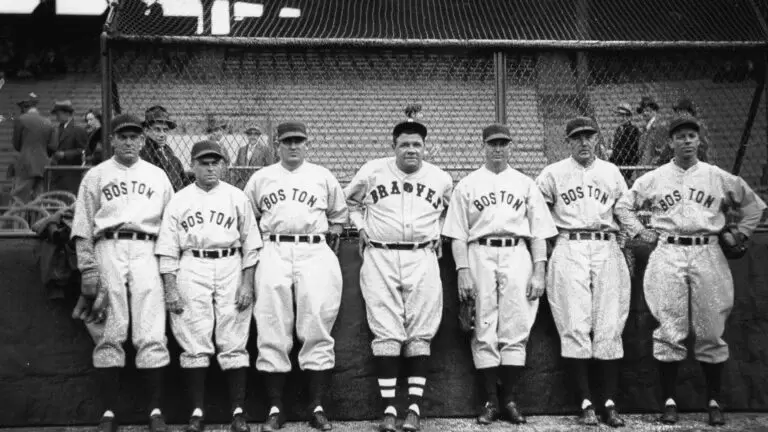


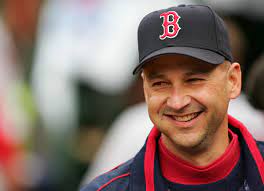
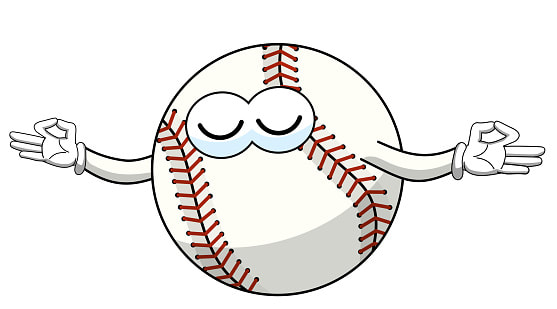

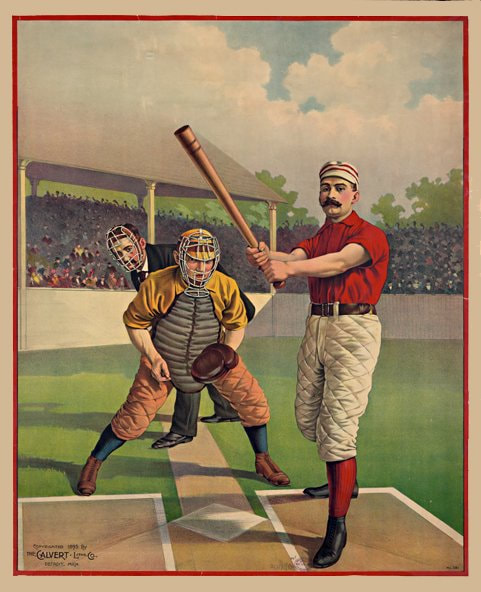

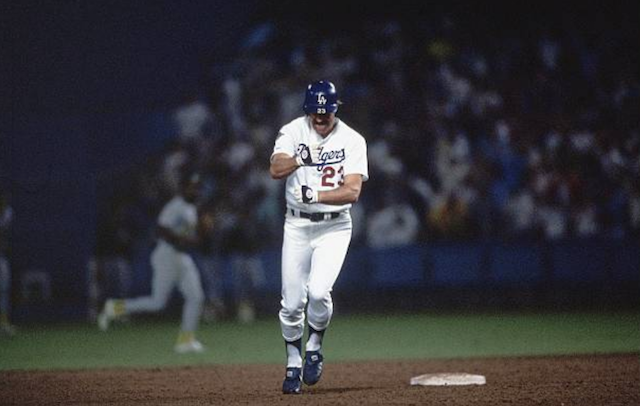

 RSS Feed
RSS Feed
